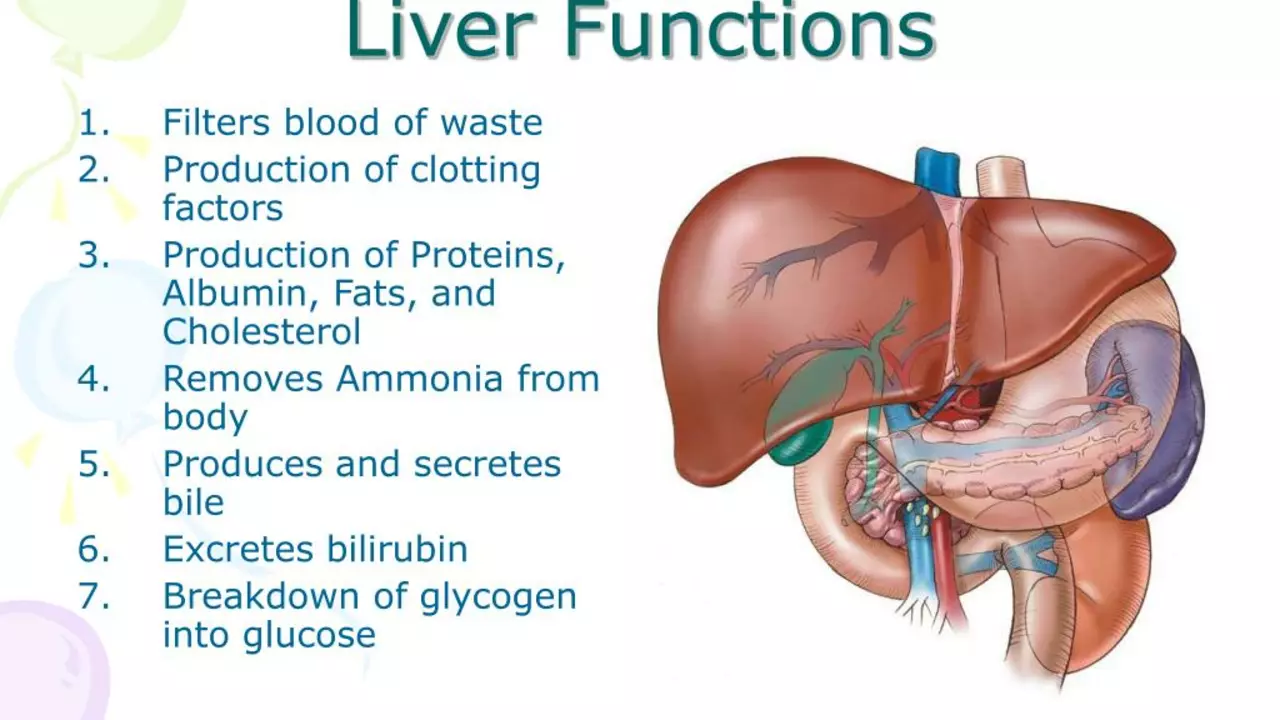Liver function: tests, meds that matter, and what to watch for
Your liver handles digestion, clears drugs, and filters toxins. When it struggles, symptoms can be subtle—fatigue, itchy skin, dark urine, or mild stomach pain. That’s why knowing basic liver tests and which meds can hurt your liver matters more than guessing.
Key liver tests you should know
When doctors check liver function they usually order a panel. The most common numbers you’ll see are:
ALT (alanine aminotransferase) — typical range about 7–56 U/L. ALT rises with liver cell damage.
AST (aspartate aminotransferase) — typical range about 10–40 U/L. AST can come from liver or muscle.
ALP (alkaline phosphatase) — typical range roughly 44–147 IU/L. High ALP suggests bile flow issues.
Bilirubin — normal usually 0.1–1.2 mg/dL. Yellowing of skin/eyes happens when bilirubin climbs.
Albumin and INR show how well the liver makes proteins and controls bleeding risk.
If one of these numbers is off, your doctor will consider your symptoms, meds, alcohol use, and other tests like abdominal ultrasound or viral hepatitis screening.
Which drugs and supplements often affect the liver
Some prescription meds and over-the-counter drugs can raise liver enzymes or cause injury. Watch for:
Acetaminophen — common cause of severe liver damage if taken above recommended doses or combined with alcohol.
Antifungals like fluconazole — can raise liver tests; check labs if you’ll be on it long-term.
Antiepileptics such as phenytoin (Dilantin) — require periodic liver monitoring.
Some NSAIDs and antibiotics can be liver-risky in rare cases; Toradol and others may need caution in certain people.
Herbal supplements are not harmless—some (kava, high-dose green tea extracts, and others) have linked to liver injury. Even natural products like arnica or plantain can interact with drugs, so mention them to your clinician.
Buying meds online without a pharmacist consultation increases risk. On GenericDay we cover safe sourcing and drug safety for readers who shop online.
What to do if your liver tests are high: stop alcohol, review all meds and supplements with your doctor, and repeat tests as advised. If you notice jaundice, severe abdominal pain, vomiting, or confusion, seek urgent care.
Practical checks you can do now: list every pill and supplement you take, check acetaminophen totals, avoid mixing alcohol with meds, and ask your doctor which liver tests you need before starting a new drug. Regular follow-up protects your liver and keeps treatments working.
Want deeper reading? We have practical articles on drugs that commonly touch the liver—like Fluconazole alternatives, Dilantin, Coumadin dosing tips, and safe pain options. Use this tag page to find posts that match your situation and read the specific advice before making changes.
In my latest research, I delved into the effects of amiloride, a medication commonly used for heart-related conditions, on liver function in patients with hepatic impairment. It turns out that amiloride can have a significant impact. For some, it aids in managing fluid imbalances, but for others, it can potentially lead to further liver complications. This reminds us of the importance of individualized treatment plans. Overall, the impact of amiloride on liver function is a complex issue that requires further investigation.



